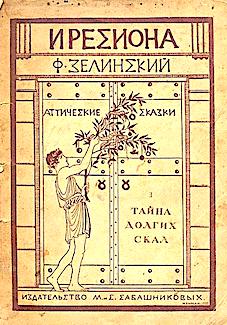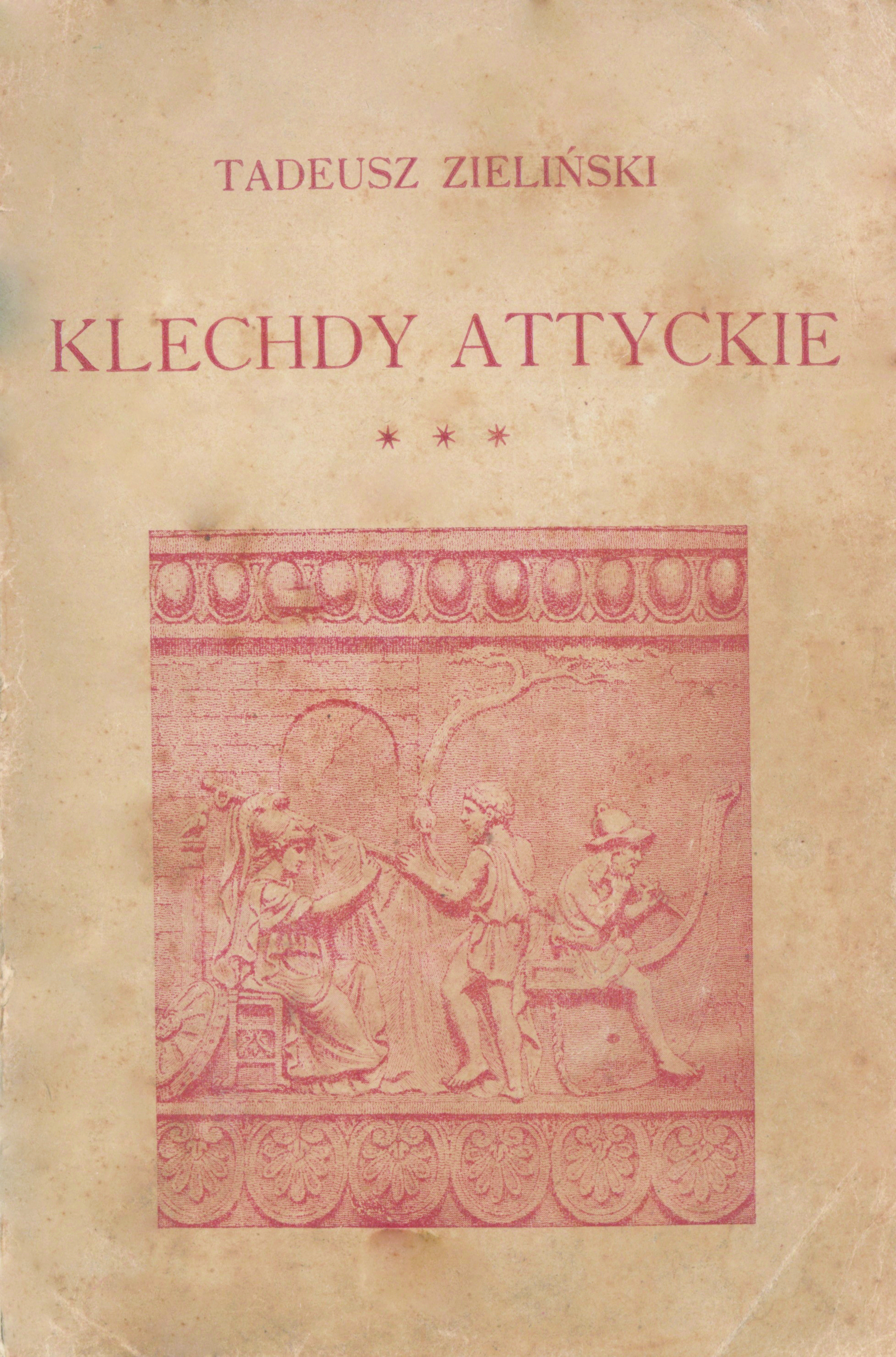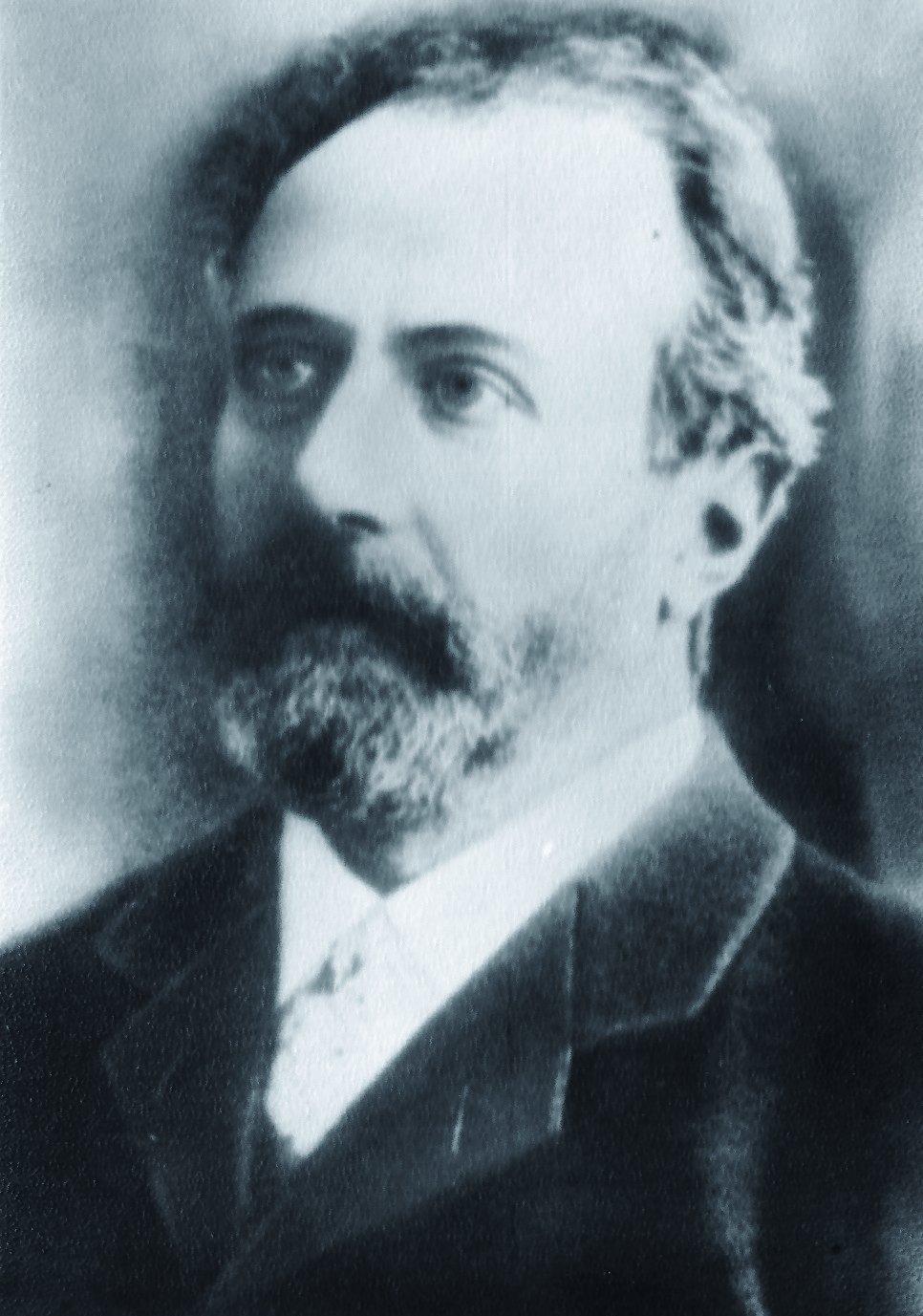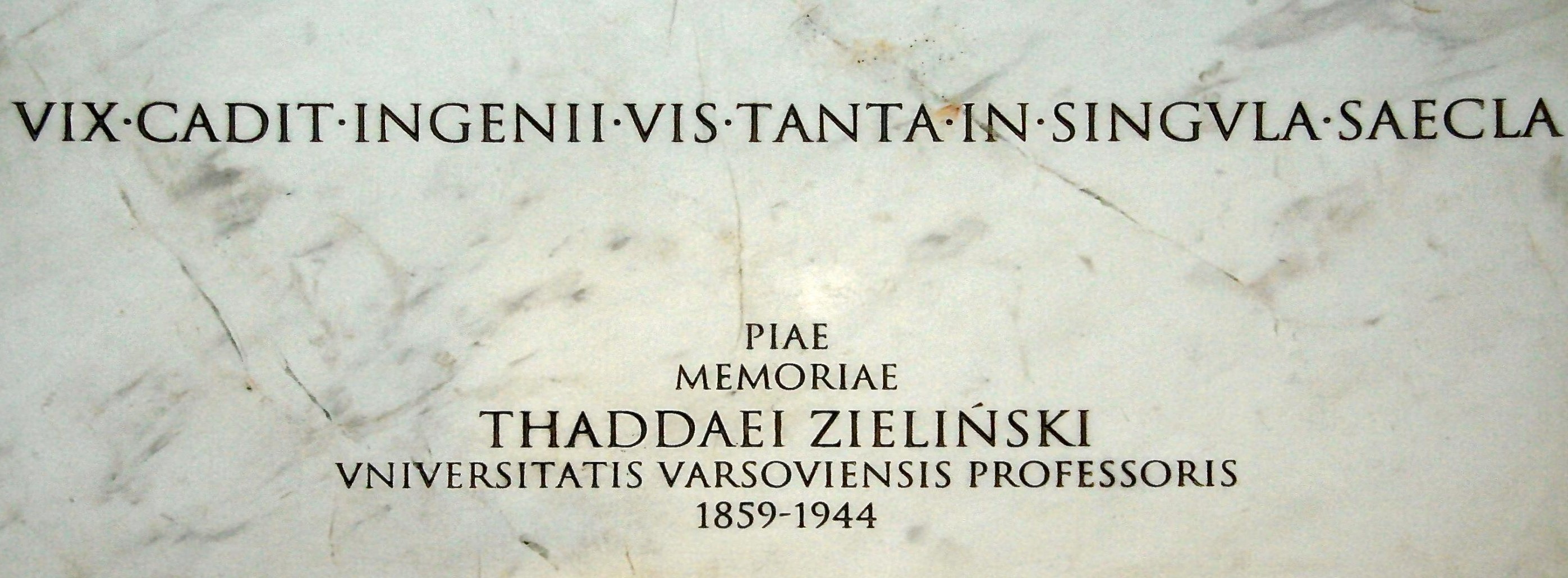Title of the work
Country of the First Edition
Country/countries of popularity
Original Language
First Edition Date
First Edition Details
Russian edition:
Фаддей Францевич Зелинский, Иресиона. Аттические сказки [Iresiona. Attičeskie skazki]. Петроград: Издательство М. и С. Сабашниковых, 1921–1922.
Вып. 1: Тайна долгих скал [Taina dolgikh skal], ill. N. A. Enman, 36 pp.
Вып. 2: У матери-земли [U materi-zemli], ill. N. A. Enman, 38 pp.
Вып. 3: Соловьиные песни [Solov'inye pesni], ill. N. A. Enman, 47 pp.
Вып. 4: Каменная нива [Kamennaia niva], ill. V. M. Konashevich, 46 pp.
Polish edition:
Tadeusz Zieliński, Irezyona. Klechdy attyckie. Ser. 1. Warszawa: Wydawnictwo J. Mortkowicza, 1912 [i.e. 1922], 170 pp.
Tadeusz Zieliński, Irezyona. Klechdy attyckie. Ser. 2. Warszawa: Wydawnictwo J. Mortkowicza, 1912 [i.e. 1922], 130 pp.
Tadeusz Zieliński, Klechdy attyckie (Irezyona). Ser. 3. Warszawa: Wydawnictwo Jakuba Mortkowicza, 1936, 180 pp.
Tadeusz Zieliński, Klechdy attyckie. Ser. 4. Warszawa: Wydawnictwo J. Mortkowicza, 1936, 152 pp.
ISBN
Available Onllne
In Russian:
Ф.Ф. Зелинский, Иресиона. Аттические сказки at dugward.ru (accessed: September 22, 2022).
In Polish:
Vol. 1, ed. 1922, available at Polona (accessed: September 22, 2022).
Vol. 2, ed. 1922, available at Polona (accessed: September 22, 2022).
Vol. 3, ed. 1936, available at Polona (accessed: Septeber 22, 2022).
Vol. 4, ed. 1936, available at Polona (accessed: September 22, 2022).
Genre
Anthology of myths*
Target Audience
Crossover
Cover

Russian edition from 1921. Cover design by Alexandr Nikolaevich Leo. Public domain.

Polish edition from 1936. Available at Polona, public domain.
Author of the Entry:
Maria Kruhlak, University of Warsaw, maria.kruhlak@student.uw.edu.pl
Peer-reviewer of the Entry:
Katarzyna Marciniak, University of Warsaw, kamar@al.uw.edu.pl
Elżbieta Olechowska, University of Warsaw, elzbieta.olechowska@gmail.com

Photograph of the Author, courtesy of Oleg Lukianchenko, the Author’s Grandson.
Tadeusz Zieliński
, 1859 - 1944
(Author)
Tadeusz Zieliński was one of the most important classical scholars of his time and a fervent promoter of classical culture and education. A philologist, ancient historian, historian of religion, essayist and translator (Zieliński translated several classical texts, including plays by Sophocles and Euripides, into Russian), equally at ease both in Greek and Roman literature; belonging to three cultures, he wrote in Russian, German, and Polish. Educated in St. Petersburg, Leipzig, Munich, and Vienna, he became a professor at the St. Petersburg University (1887–1920) and later at the University of Warsaw (1921–1935); he was revered by his students and by later generations of classicists as an inspiring teacher, ground-breaking researcher, and distinguished scholar who i.a. recognized the value of reception studies long before they became popular.
He was a member of the Polska Akademia Umiejętności [Polish Academy of Arts and Sciences]; Doctor honoris causa of multiple universities (including the University of Oxford, University of Athens and Jagiellonian University). His decorations include the Order of Polonia Restituta (for outstanding achievements in national culture) and the Greek Order of the Phoenix, 2nd Class. He was a colourful, unforgettable, and hugely popular figure in pre-war Poland; an exceptional, magnetic speaker, he was constantly invited to speak at home and abroad and greatly enjoyed his extensive travels, especially to the Mediterranean countries, as shown in his correspondence. At the initiative of Professor Jerzy Axer, the students of his students honoured him by a commemorative tablet at the Faculty of “Artes Liberales” of the University of Warsaw (below, phot. by Robert Przybysz).

Zieliński’s multilingual bibliography numbers over nine hundred works in the fields of classical philology, ancient history, ancient culture and religion, e.g. monographs on Cicero (Cicero im Wandel der Jahrhunderte, 1897), Sophocles (Sofokles i jego twórczość tragiczna [Sophocles and his Tragedies], 1928), and Horace (Horace et la société romaine du temps d’Auguste, 1938) or his six-volume work on ancient religions Religie świata antycznego [Religions of the Ancient World] (1918–1999). The last two volumes (the fifth volume’s manuscript was destroyed in a fire during the German bombardment of Warsaw in 1939) were written and completed by Zieliński during WW2. They remained unpublished for several decades due to the hostility of Communist authorities towards the great scholar. These volumes are a testament to his remarkable erudition and reflect a specific, spiritual and philosophical vision that developed in his later years. Furthermore, his autobiography (1924) was written in German and intended for his children. During WW2 and up until his last days (1939–1944), he jotted down his thoughts in his Polish diary, as well as his letters, especially those to his youngest daughter Ariadna in Russia (1922–1937) and the exchange of letters between his children in Germany, Russia and Japan (1958–1969) are of invaluable assistance in understanding Zieliński’s complex personality.
Among his works designed to popularise classical culture, there are also some examples of children’s literature.
Sources:
Zieliński, Thaddäus, Mein Lebenslauf – Erstausgabe deutschen Originals – und Tagebuch 1939–1944, Herausgegeben und eingeleitet von Jerzy Axer, Alexander Gavrilov und Michael von Albrecht; unter Mitwirkung von Hanna Geremek, Piotr Mitzner, Elżbieta Olechowska und Anatolij Ruban, Frankfurt am Mein: Peter Lang, 2012.
Olechowska, Elżbieta, ed., Tadeusz Zieliński (1859–1944). W 150 rocznicę urodzin, Warszawa: IBI AL UW, KNoKA PAN, 2011.
Bio prepared by Elżbieta Olechowska, University of Warsaw, elzbieta.olechowska@gmail.com
Summary
Based on: Katarzyna Marciniak, Elżbieta Olechowska, Joanna Kłos, Michał Kucharski (eds.), Polish Literature for Children & Young Adults Inspired by Classical Antiquity: A Catalogue, Faculty of “Artes Liberales”, Warsaw: University of Warsaw, 2013, 444 pp.
This collection of Attic legends is Zielinski’s only work of fiction. Originally they were written (in Russian) and published separately in various newspapers and magazines, only later were collected and published as one book. These are the stories that reflect the earliest mythical events of the pre-history of Ancient Greece.
Attic Legends were associated closely with the interests of a religion expert. This work was written as a sort of compensation for the lack of travels to Greece to which the author was accustomed, and which, unfortunately, had to be postponed because of the war.
Attic Legends are an attempt to present a history of beliefs and customs of the Greeks of Attica in mythical times (e.g. gods – Dionysus, Demeter, etc. – descend to earth and teach people how to handle properly their gifts). The legend that deserves special attention is Kamienny Łan [Stony Cornfield], which shows not only the beliefs and rituals of the ancient inhabitants of Attica, but it is also a parallel to a real situation experienced by the author (a tragic suicide of a young girl in love with her teacher). In this tale the title of the first part of the collection is explained: Irezyona (Greek: εἰρεσιώνη), a ritual olive branch, is also the name of a character, and a symbol of rebirth and forgiveness, adding depth and forcing the reader to reflect on its meaning.
Analysis
Work in progress.
Further Reading
Lukianchenko, Oleg A., Аттические сказки Ф. Ф. Зелинского at relga.ru (accessed: September 22, 2022).
Olechowska, Elżbieta, ed., Tadeusz Zieliński (1859–1944). W 150 rocznicę urodzin, Warszawa: IBI AL UW, 2011.
Zieliński, Tadeusz, Autobiografia. Dziennik 1939–1944, do druku podali Hanna Geremek i Piotr Mitzner, Warszawa: OBTA & Wydawnictwo DiG, 2005.


